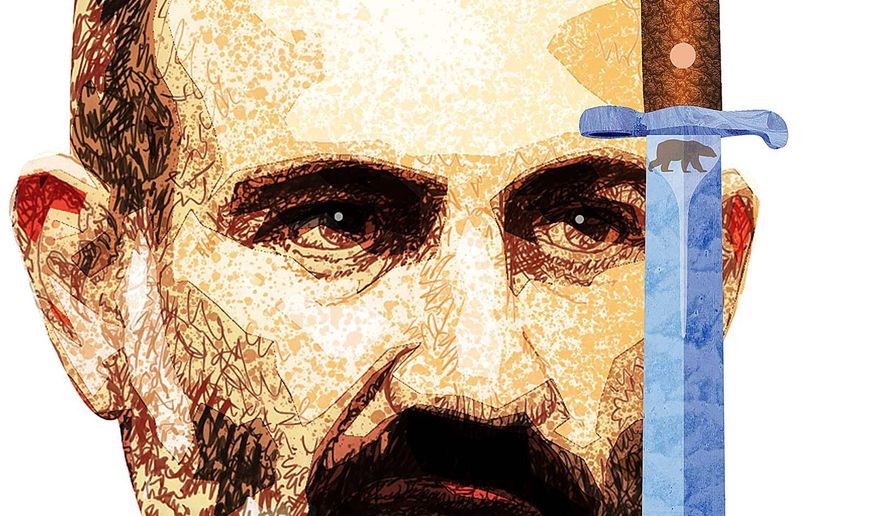OPINION:
Armenia’s revolution of April-May generated possibilities for real economic and political progress. In no small measure it succeeded because its leader, Nikol Pashinyan, stated that he “had no geopolitical agenda.” He repeatedly stated that Armenia would continue its course of membership in Russia’s Eurasian Economic Union and their Collective Security Treaty Organization. And, since, he has repeatedly reiterated his government’s commitment to improving ties with Moscow.
However, despite rhetoric on efforts to democratize Armenia, Mr. Pashinyan has not only reaffirmed Armenia’s close ties to Russia, he has also displayed its deep intimacy with Iran. Emblematically, before coming to New York to attend the U.N. General Assembly he is visiting Iran. In addition, he has made numerous statements and gestures indicating an unwillingness to negotiate on the Nagorno-Karabakh issue with Azerbaijan.
However, in so doing Mr. Pashinyan, possibly unwittingly, but nevertheless clearly, has placed his own democracy campaign at risk. As long as Armenia holds onto Azerbaijani territories it will not have peace. Instead it will have to continue its excessive dependence on Moscow that all but guarantees the eclipse of Armenia’s democratic aspirations. Moscow is already warning of “frank and serious talks”, i.e. difficult negotiations with Mr. Pashinyan due to his democratizing moves.
Simply, peace with Azerbaijan is a precondition for democratization in Armenia. War offers Russia multiple opportunities it will not forego to coerce Yerevan into subservience and act decisively to undermine Mr. Pashinyan’s reforms if not him personally. Peace, however, is the sole guarantee that Armenia can both democratize and move forward provided it receives strong Western backing.
This affects the United States because Mr. Pashinyan allegedly wants a meeting with President Trump in New York. Such meetings with a president possess great resonance in these leaders’ and at home and Armenia is no exception. Before this meeting possibly occurs, Mr. Pashinyan should give the United States reasons to support him.
However, Armenia’s subservience to Moscow and its retention of conquered territories going beyond Nagorno-Karabakh to include purely Azerbaijani and undisputed lands like the Azerbaijani province of Nakhichevan are incompatible with U.S. support or democracy. Therefore, to support, peace, democracy, and the advance of U.S. interests, a well-conceived initiative must be launched to break the deadlock with Azerbaijan and promote a peace settlement that would benefit everyone, except Vladimir Putin, the only actor whose interests are served by continuing strife.
To advance Armenian democracy, regional peace and security, along with opportunities for regional democratization, i.e. long-stated interests, we must offer both sides a truly serious initiative regarding Nagorno-Karabakh. Our previous and ongoing neglect of the Caucasus plays into Moscow’s hands, strengthens its position in the Black Sea and Middle East, and threatens Turkey, our NATO ally, despite the present discord.
Mr. Pashinyan may have hitherto had little choice but to throw in with Moscow, but unless we intervene diplomatically with a serious regional initiative, Armenia’s military and economic dependence on Moscow will strangle its revolution or lead Moscow to try and undermine it by force if necessary. Members of Armenia’s elite have, largely, done well and become wealthy and powerful with the war and are deeply embedded with Russian elite. Thus, both groups have much to lose from reform and peace.
War, in the absence of reform, only strengthens them and their abilities in both Yerevan and Moscow to block democratization and maintain Armenia’s subordination to Russia. Though, peace, backed by strong U.S. and European support creates opportunities for both Armenia and Azerbaijan to cooperate, reducing Russian pressure on Turkey and opening new possibilities for these countries’ integration with Europe, their professed goal.
Mr. Pashinyan must hear from the United States that his democratic aspirations are only realizable if acted upon together, decisively, to bring peace — for Moscow will neither bring peace to the Caucasus nor countenance democratization. But if we continue to remain AWOL in the Caucasus, the logic of war and vengeful nationalism will erode democracy. Thus, maintaining long-held Armenian politics with its hunger for Azerbaijan’s territory, including lands that are not part of Nagorno-Karabakh.
This must be the message the State Department gives to Yerevan. We should encourage democratic reforms, only if accompanied by genuine moves to end the war. If Mr. Pashinyan demonstrates real resolve to end that war then he and the Aliyev government in Azerbaijan deserves the promise of our robust support.
War and independent democratic reform do not go together under Moscow’s watchful eyes and if Mr. Pashinyan thinks he can simultaneously democratize and retain Azerbaijani lands while depending on Russian bayonets, he is deluding himself. In that case he will become the gravedigger of his own revolution and join the long list of would-be reformers whose nationalist and even imperial ambitions caused them to step on the throat of their own democratic song in territories that Moscow thinks should be under its control.
• Stephen Blank is a senior fellow at the American Foreign Policy Council. He was formerly the MacArthur fellow at the United States Army War College.




Please read our comment policy before commenting.